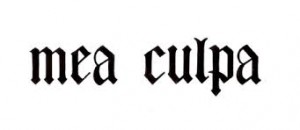 [1]Neither a company nor its directors or officers have an affirmative obligation under the FCPA to disclose knowledge of a violation. But enforcement officials stress that there are benefits to doing so, including more lenient treatment and credit when penalties are calculated. Recently, outgoing DOJ Fraud Section Chief Jeffrey Knox said in an interview with Just Anti-Corruption [2], “[C]ompanies that self-disclose conduct are in a much better position than those who don’t. They are much more likely to be given deference by us than those that are receiving a phone call from us telling them about the conduct.”
[1]Neither a company nor its directors or officers have an affirmative obligation under the FCPA to disclose knowledge of a violation. But enforcement officials stress that there are benefits to doing so, including more lenient treatment and credit when penalties are calculated. Recently, outgoing DOJ Fraud Section Chief Jeffrey Knox said in an interview with Just Anti-Corruption [2], “[C]ompanies that self-disclose conduct are in a much better position than those who don’t. They are much more likely to be given deference by us than those that are receiving a phone call from us telling them about the conduct.”
What issues can companies consider when facing the question – should we disclose?
How egregious was the violation? Did the misconduct involve high-ranking employees? Was it extensive and systemic in the organization? The better the facts, the more inclined authorities will be to extend significant leniency to the company. The worse the facts, the less beneficial treatment a company might expect. There are certainly instances where disclosure could lead to lenient treatment, even when facts are bad. But this question is still relevant to the overall picture.
Does the company have a good story to tell? Was the issue discovered through its internal controls? Did the company quickly respond to the misconduct and discipline wrongdoers? Was the issue an exception to an otherwise strong compliance framework? The more the company can tell a story showing responsible management of corruption risks, the better it will look in the disclosure context.
Is the company ready for a protracted and uncertain negotiation with the government? By self-disclosing, a company helps position itself to drive the internal review, remediation process, and framing of issues for the government. But it also (close to) guarantees itself a lengthy, involved process of discussions and negotiations with authorities. This means more legal fees and potential disruption of business operations. The government might even request that the investigation be broadened. Even with credit for disclosure and cooperation, the matter could end with significant penalties and sanctions.
How likely is the issue to come to the attention of FCPA enforcement authorities? Could there be a whistleblower? Is another company involved in the wrongdoing likely to disclose? Might a competitor bring the issue to the government’s attention? Is the press likely to uncover the facts? The more likely the misconduct is to come to light, the more important it will be to bring it to the government’s attention first.
Do individuals have exposure? FCPA enforcers say [3] that they are much more focused today on holding individuals accountable for FCPA misconduct. This means that, if a company discloses an issue, it should expect the government to consider actions against responsible individuals themselves. This might affect disclosure calculations, especially for smaller companies.
What are the reputation risks at play? Considerations of the company’s reputation can cut in two directions. Some companies might be less inclined to disclose for fear of negative publicity. Others might see disclosure as a helpful way of controlling public perceptions.
Would other enforcement authorities have an interest? If the misconduct involves several jurisdictions, the company could expect other authorities to pick up the case. The sanctions programs of the World Bank and other multilateral development banks could be triggered. Before revealing the issue to the U.S. government, companies should consider the broader implications.
Disclosure has led to tangible benefits for several companies, like Bizjet [4] and Ralph Lauren [5] (though this article [6] calls into question the benefits of disclosure in Ralph Lauren). Nonetheless, those making the decision should be aware of all implications before taking this path. Ultimately the decision will relate to a company’s own risk tolerance. Some are more willing to take chances than others. One thing is for certain, whether or not a company chooses to disclose, it should conduct a credible and independent internal review and remediate compliance weaknesses that led to the problem in the first place.
The opinions expressed in this post are those of the author in his or her individual capacity, and do not necessarily represent the views of anyone else, including the entities with which the author is affiliated, the author`s employers, other contributors, FCPAméricas, or its advertisers. The information in the FCPAméricas blog is intended for public discussion and educational purposes only. It is not intended to provide legal advice to its readers and does not create an attorney-client relationship. It does not seek to describe or convey the quality of legal services. FCPAméricas encourages readers to seek qualified legal counsel regarding anti-corruption laws or any other legal issue. FCPAméricas gives permission to link, post, distribute, or reference this article for any lawful purpose, provided attribution is made to the author and to FCPAméricas LLC.
© 2014 FCPAméricas, LLC